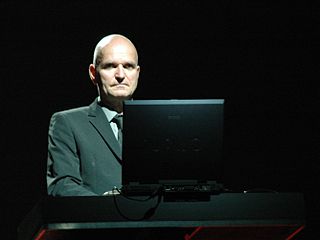A Quote by Susan Fiske
Some people have set up sort of "gotcha" algorithms that apparently crawl through psychology articles and look for fraudulent p-values [a measure of the likelihood that experimental results weren't a fluke]. But they're including rounding errors that don't change the significance levels of the results, and they're doing it anonymously.
Related Quotes
We tend to think that, in a traditional organisation, people are producing results because management wants results, but the essence of a high-quality organisation is people producing results because they want the results. It's puzzling we find that hard to understand, that if people are really enjoying, they'll innovate, they'll take risks, they'll have trust with one another because they are really committed to what they're doing and it's fun
Education means teaching kids how to do stuff and how to think about stuff. Education is a pretty simple concept with a very clear way to measure results: you give some kind of an exam - maybe it's one of those standardized tests all kids hate, maybe it's some kind of essay, but whatever it is, it'll measure the results, and the kids will hate it.
Man must have results, real results, in his inner and outer life. I do not mean the results which modern people strive after in their attempts at self-development. These are not results, but only rearrangements of psychic material, a process the Buddhists call 'samsara' and which our Holy Bible calls 'dust'.
Do not depend on the hope of results. You may have to face the fact that your work will be apparently worthless and even achieve no result at all, if not perhaps results opposite to what you expect. As you get used to this idea, you start more and more to concentrate not on the results, but on the value, the rightness, the truth of the work itself. You gradually struggle less and less for an idea and more and more for specific people. In the end, it is the reality of personal relationship that saves everything.
Changing the world is like trying to straighten a dog's tail. However much you may try, you won't succeed. But although the tail won't straighten, if you keep trying every day, at least you will put on some muscle. Similarly, even though it is difficult to make a change, our effort to do so in itself brings positive results. It will help us change. Without waiting for others to change,if we change ourselves first, that will make a difference. Instead of worrying about results, focus on doing our best in what we are engaged in.
In point of fact, no conclusive disproof of a theory can ever be produced; for it is always possible to say that the experimental results are not reliable or that the discrepancies which are asserted to exist between the experimental results and the theory are only apparent and that they will disappear with the advance of our understanding. If you insist on strict proof (or strict disproof) in the empirical sciences, you will never benefit from experience, and never learn from it how wrong you are.
So much of teaching is sharing. Learning results in sharing, sharing results in change, change is learning. The only other job with so much sharing is parenting. That's probably why the two are so often confused. You can't test what sort of teacher someone will be, because testing what someone knows isn't the same as what someone is able to share.


































